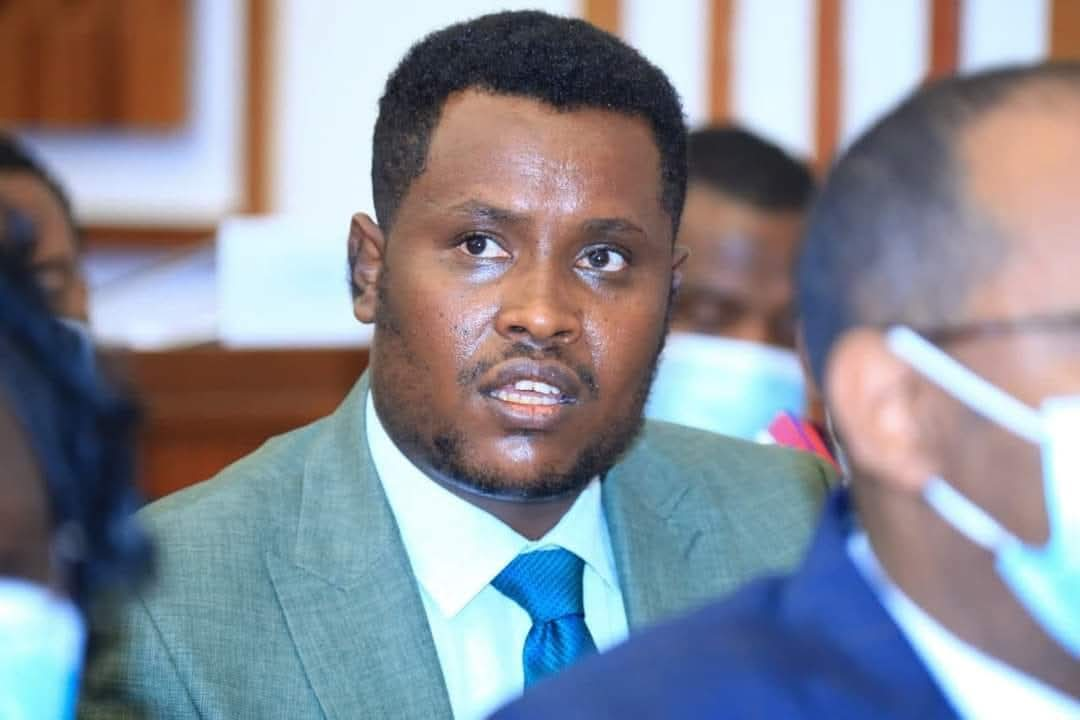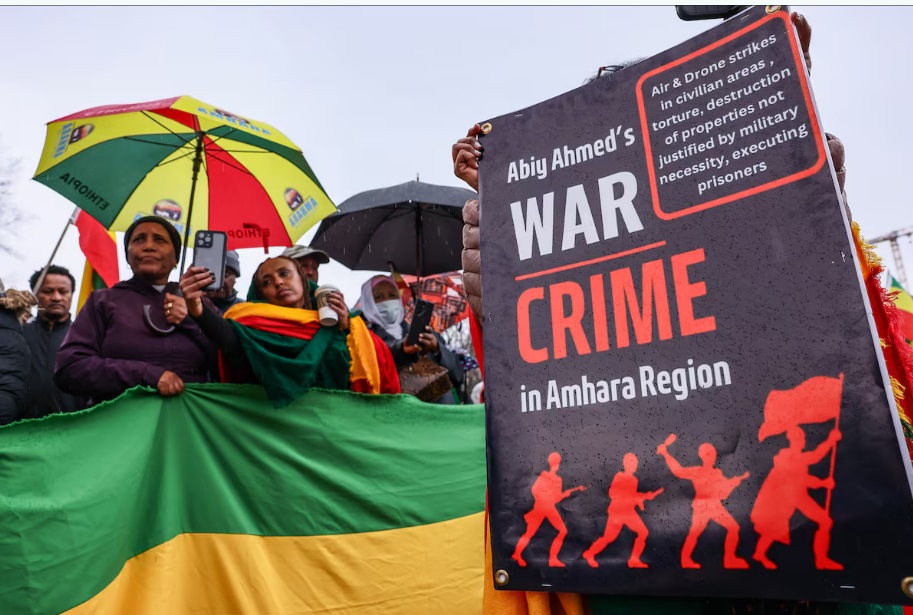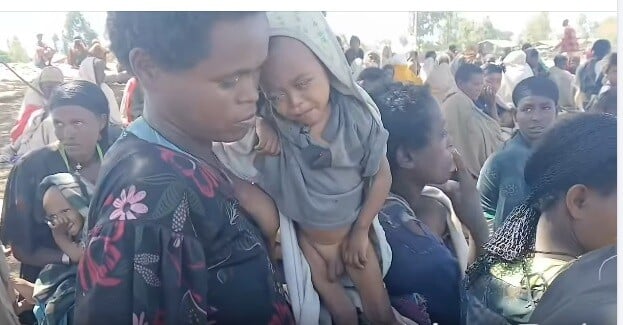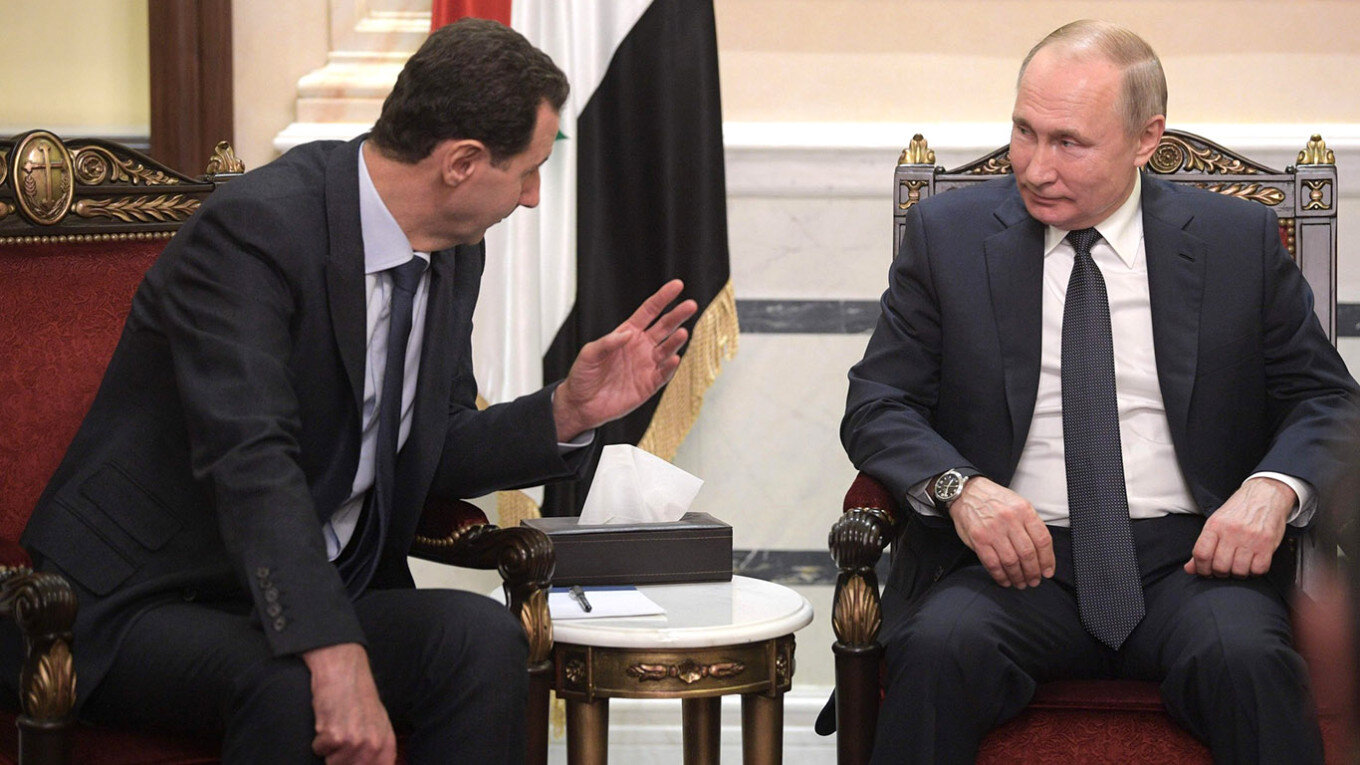Yonas Biru, PhD
 Two things rattle the Boy-King’s confidence in maintaining the levers of power. But his opponents are oblivious. For those who care to listen, he has publicly announced what he fears the most. First is Jawar’s political transformation. There is a reason why he felt compelled to denigrate Jawar’s book as soon as it was released. He understands that a change in mindset in the Oromo theology of grievance politics marks the beginning of the end of his juvenile kingdom. He sees Jawar’s book with such a lens.
Two things rattle the Boy-King’s confidence in maintaining the levers of power. But his opponents are oblivious. For those who care to listen, he has publicly announced what he fears the most. First is Jawar’s political transformation. There is a reason why he felt compelled to denigrate Jawar’s book as soon as it was released. He understands that a change in mindset in the Oromo theology of grievance politics marks the beginning of the end of his juvenile kingdom. He sees Jawar’s book with such a lens.
The Boy-King is aware that extremist Oromo nationalists such as Oromo-Shene and the Oromo Liberation Front do not resonate with the Oromo public and as such do not pose a threat to his reign. In contrast, Jawar’s new political narrative that flirts with a unionist mindset reverberates with the Oromo public’s desire for a unified Ethiopia and sustainable peace and security.
Second, the Boy-King often tells his Amhara detractors that they cannot dethrone him by alienating him from the Prosperity Party. He also tells them more often than they care to listen that he knows how the TPLF was dethroned, and that process will not repeat itself. The tone and tenor of his frequent outbursts whisper that his fear lies in any effort that attempts to alienate him from the prosperity party. His insecurity is what triggers him to speak about it as often as he does.
Now the question is: What will it take for the Amhara political elites and Jawar to close ranks, expand the political space to bring other forces on bord, and build the nation’s political system? Obviously, this demands using democratic deliberation and persuasion as instruments of a transformative change.
As it stands, Jawar’s book may earn him a boatload of money but will not help him to regain his political clout, much less to dethrone the Boy-King. On the Amhara side, Fano’s ability of dethroning the Boy-King is undermined by tribal extremists and hermitized Amhara intellectuals whose infatuation with newfangled Amhara nationalism has become profoundly idiotic, if not outright self-destructive.
As fate would have it, the nation’s destiny is tied partly to Jawar’s and Fano’s willingness and ability to recalibrate their political orientations toward creating a viable coalition. Such a coalition is likely to lend itself to a sustainable peace and transformative democracy. The viability of such an outcome requires cooler heads to emerge both in the Oromo and Amhara political space.
The Oromo tribal land is ripe for Oro-Mara 2.0. To start with, the people of Oromo are suffering under the Boy-King’s administration and his cadres of kleptocrats. There is a growing realization that tribal politics has not benefited the people of Oromo. They want changing of the guard.
Furthermore, Jawar’s current sober political views resonate with them. But this is not enough. He needs to win the confidence and trust of the Amhara political universe and beyond. This requires him to elevate himself from being a smart Alec to a seasoned politician who is as prepared to learn from others as he is to impart his knowledge to others. He is a gifted orator and a phenomenal mobilizer. But he is also a handicaped strategist. Coming to terms with it will serve him well in his advancement as a political leader.
On the positive side, his current outlook bears two strategic sifts. First, he has gone from peddling the destructive portrayal of Ethiopia as a 120 year old colonizer of Oromia to embracing the view that “Ethiopia is an old state with a historically rooted long state formation lineage, like Egypt and Iran.”
He has also abandoned his grievance narrative of “Neftegna political suppression and forced assimilation over Oromia” and adopted a new outlook that nations are built through political subjugation and social assimilation. In this regard, he now believes Ethiopia’s history is no different from other nations.
His current view is consistent with that of Professor Mohammed Hassen – the most renowned Oromo historian and a member of the Oromo Liberation Army’s delegation in international negotiations. The good professor acknowledges “Oromos assimilated more than they were assimilated by others.” He goes further to state that the Mogassa assimilation process “included absorbing defeated tribes as clients or serfs into the [Oromo] tribal structure… The vanquished, still owners of their plots of land became the serfs or clients of the pastoral Oromo, who demanded service and tribute from them.”
Professor Mohammed is not shy to document the use of slaves as part of the Oromo perpetrated assimilation process. Here is how he explained it. “While the Gadaa leaders marched with men and cattle from pasture to pasture as soon as the forage of a place was consumed, the wealthy individuals settled permanently on the lands. Their cattle were looked after by Oromo servants and non-Oromo slaves. By the beginning of the nineteenth century in the Gibe region of western Oromo land the term Borana had already acquired the meaning of noblemen, rich in cattle and slaves.”
Alas, Oromo is not only a victim of forced assimilation, but also a perpetrator of forced assimilation in Ethiopia’s state building journey. Jawar has embraced this narrative as a historical reality and removed himself from Oromo Liberation Front’s destructive and quite frankly idiotic grievance politics.
Secondly and most importantly, Jawar has come to the realization that tribal politics breads dissent, fosters tribal conflicts, and stands in the way of building a democratic governance system and producing a sustainable peace. He has gone as far as attributing the nation’s political crisis to the tribal constitution. His only reservation is that it may be difficult to undo the tribal institutional architecture in the short term. He has made this clear in no uncertain terms in his interview with Dereje Haile of Arts Tv World.
His transformation is long overdue and necessary to salvage his legacy and make a positive contribution in the nation’s politics. He needs to make his transformation a prominent part of his political narrative both to re-educate the Oromo youth and win the confidence and support of moderate forces both inside and outside of the Oromo tribal homeland. He must come to terms that his too-clever-by-half attitude of the past has not served him.
He must also muster the courage to own his past. His sanctimonious tendency of touting himself as “holier than thou” does not serve his purpose. His past is smeared with glaring conflict-peddling. History will also see him as a leading part of the bloodletting political crisis. No book or shenanigan-enriched revision of history can change that.
Moving forward, he can only change the trajectory of his political footprints. In this regard, he must realize that former Qerro leaders and extremist Oromo tribal intellectuals who in the past constituted his political disciples are less likely to fall behind his new unionist spell. His focus must be on the Oromo public that is sick and tired of tribal politics. It is in his best interest to jump off his white horse and humble himself to appreciate the transformative values of contrition, repentance, and redemption.
This said, this must be, too. Even in the best of circumstances, Jawar’s political transformation will not change the nation’s political climate without a mirroring transformation in the Fano land. The challenge is immense given the fact that the Fano universe is increasingly dominated by new-convert Amhara tribalists who see war as the only viable means for change.
Their adrenalin-infused fervor and full-thank brouhaha of dethroning the Boy-King and claiming the levers of power in two weeks has met the vagaries of hard reality. Reality, as the singer Brad Young teaches us, is a “Bitch.” After nearly two years, Fano has met its bitch. It has failed to capture and maintain a mid-size town, much less Addis Ababa. There is no reason to believe it will march into Addis two years from now. Even if it does reach Addis, there is no reason to think it can govern the Oromo region in peace.
No matter how one might slice and dice it, the Fano-PP war is in a stalemate. Only the Boy-King and his clown-inspired field marshal and their idiotic intellectual equivalents in the Amhara tribal intellectual class would think otherwise.
It is time for a paradigm change. This requires focusing on the future not dwelling in the past. Jawar has said and done so many things for which history will judge him. Ethiopians have also read Christian Tadele’s manifesto titled “የምንገነባው ብሔርተኝነት ግራዋ እንጂ ሚሪንዳ ስላለመሆኑ.” One of the points he made was the need to build “ጽንፈኛ የአማራ ብሔርተኝነት.” His recommendation included “የአማራ የሆነን ሁሉ መጠቀም (ከአማራ ያልሆኑ ነገሮችን አማራጭ ካልጠፋና የግድ ካልሆነ በስተቀር አለመጠቀም).” Christian is also the person who declared “አትዮጵያን የፈጠረው አማራ ነው… አማራ ለኢትዮጵያዊነት የውሃ ልክ ነው.“
Over a year ago, I was on Roha TV with Meaza Mohammed to discuss this issue. During the interview, Meaza requested that I share the link to Christian’s treatise. Many in the Amhara extremist colony accused me of attributing Bekele Gerba’s statement to Christian. Unfortunate to them, Christian’s treatise was posted on ቤተ አማራ (Bête Amhâra) and many other Amhara social media outlets. I provided them with several links. The links were working when I shared them. They were removed shortly after I shared them.
The Fano establishment needs to recalibrate its political strategy by eradicating tribal extremists, silencing hermitized Amhara intellectuals and avoiding the tendency to limit its option to military showdown. It needs to broaden the scope of its coalition and expand its political choice set with plans B and C. It serves Fano well to pay heed to the wisdom of Otto von Bismarck – “Politics is the art of the possible, the attainable — the art of the next best.”
Jawar’s and Christian’s ጽንፈኝነት may be different in degrees and methods, but not in kind or essence. If Fano sees Christian as an Amhara icon, there is no reason why it cannot talk and forge a common agenda with Jawar. The first step is starting to talk and setting of the siren for a transformative change.
Obviously, perusing a transformative change in the current political environment is akin to navigating through rough waters with strong winds and high tides. But it is far better than stalemating in the trenches of a dragged-out war with no ending in sight.
The Fano establishment needs to realize two things. First, building a broad coalition is necessary to shorten the war and minimize the cost both in terms of life and treasure. Second, military victory is not limited to claiming the levers of power. Victory can also be measured by forcing a change in governance, short of a change of government. Alienating the Boy-King from his party and pursuing power sharing need to be part of the choice set in Fano’s political calculus.
Jawar has taken a baby step in the right direction. His gesture may not last long given his Smart Alec attitude, but any short-term positive gain can alter the political trajectory and set of a new process. The Pretoria agreement may have not resulted in a transformative change, but it has ended the war in Tigray and opened a new process. Any incremental process should be encouraged and pursued.
The Fano universe need to pose, reflect and meet Jawar with caution and courage. Power-sharing requires change in mindset toward a win-win outcome and ending the prevailing siege mentality that sees war as a zero-sum singular path to political victory.
It warrants repeating that Jawar and the Fano universe will benefit from freeing themselves from the impediment of a holier-than-thou attitude and find a common ground to form a win-win coalition. This will open a new space for a broader coalition with other forces. The Boy-King will be the only loser in this scenario.
📍የኦሮሙማው መንግሥት ዕድሜ ማራዘሚያ ካርድ=> ጃዋር መሐመድ ‼
* በሁሉም መስክ ውርደት፣ ሽንፈትና ቅሌት እየተከናነበ የመጣው የኦሮሙማው ፋሽስታዊ ቡድን፥ ነፍስ-መዝሪያ ብሎ የመዘዘው ካርድ "ጃዋር መሐመድ" ይባላል‼‼‼… pic.twitter.com/KvEOE8CXHE
— AmharaQuest (@AmharaQuest) December 23, 2024















